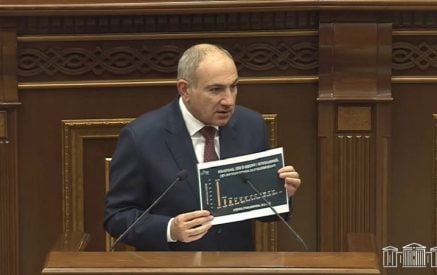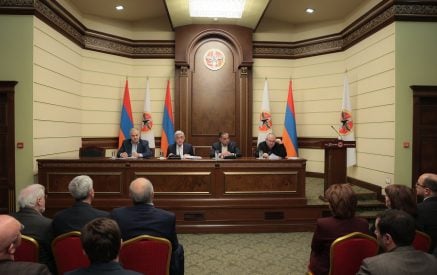If the minimum program of “non-governments” anywise becomes a reality, and the government is resigned, the next night 2-3 dozens of Republicans will become PAP members. The Nzhdeh spirit as was awakened in them so as will sleep in them, the national conservatism will be forgotten in a few seconds. No personal problem, it’s a pure business. In the result of this operation, the Republican Party will lose its majority in the Parliament, and, probably, a “velvet revolution” will commence.
Whoever comes to power after this revolution will announce that the previous regime was criminal, that they had received a severe legacy, but now they will do everything to take the people out of this critical condition.
People, in other word, the mass, whose feelings the revolution doers are voicing their hope over 20 years, will continue showing “bad cess to you!” to any government and saying “pooh, hell with you, when you will be starting to think a little more about the people”. Non-government forces will become government forces, and two months later, new opposition (not the Republican Party, of course) will appear from the “velvet revolution”, which will require the immediate resignation of the president.
Armenia’s more or less sober politicians know what is expected to us in case of the velvet revolution, as well as they realize what will happen if no revolution takes place at all. In both cases, any ruling force would be willing to have political autocracy, will block all opposition initiatives. Whereas the opposition in the parliament and through the media will lash, protest, and threatening the “criminals” by jail, and over the months or years, either will or will not conduct the next revolution in turn, which could be velvet and not so much. All of these is not conditioned by personal characteristics of politicians rather than exclusively by the system, which was created about twenty years ago, and which is improved and hardened by any government followed by its interests.
Read also
Some say that, well, if the parliamentary system exists, and the power is not in one person’s hands, the aforesaid system will undergo changes. I do not believe it either. I believe in political generation change. When discreet and well-educated young people devoid of extremes find their place next to the older generation that gave birth to cynical careerists, on the one hand, and stereotyped red guards, on the other hand. It is not necessary for all of them to become politicians, it is important for this generation to realize that the power is not the “family father”, who will be taking care of its “child-citizens”, that the power is not for loving or hating rather than to temporarily perform certain limited functions. Such healthy young people are also available today, and quite a lot. It remains for them to form a certain critical mass.
ARAM ABRAHAMYAN























































